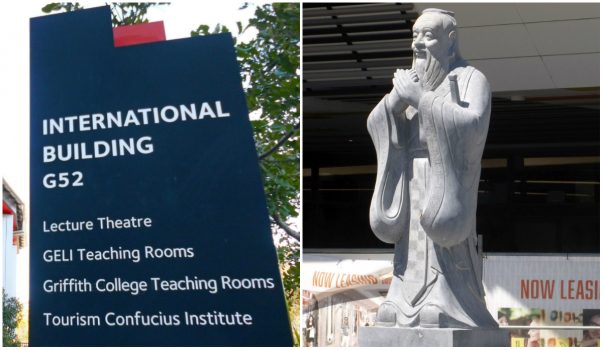New Foreign Relations Law Stops Beijing Exploiting Gaps in Australias Federation
Prime Minister Scott Morrisons new Foreign Relations Bill will close a “gaping seam” between federal..
Prime Minister Scott Morrisons new Foreign Relations Bill will close a “gaping seam” between federal, state, and local governments that has been exploited by Beijing, according to an expert.
Michael Shoebridge, director of defence at the Australian Strategic Policy Institute (ASPI), told The Epoch Times on Aug. 27, that the value of a cohesive national strategy between different levels of government was on display during the COVID-19 pandemic, and was sorely needed to address gaps in foreign affairs.
“Chinas policy is an area where this is clearly vital and where the new law will be powerfully useful,” he said.
On Aug. 27, the prime minister, along with Foreign Minister Marise Payne, announced the Foreign Relations Bill which will give the federal government power to scrutinise, and potentially veto, agreements between foreign governments and Australias state and territory governments.
The law would also cover agreements entered into by universities and local councils.
“What Australia is doing is ensuring that arrangements that are entered into by state and territory governments are in Australias national interests,” Payne told Channel Nine on the same day.
“Most importantly we do our due diligence on those agreements, and we ensure that they are consistent with our foreign policy approach,” she said

Within six months of the new laws coming into place, states and other bodies covered will have to complete a stocktake of existing agreements for review.
There are over 135 agreements across 30 different countries to be examined.
Shoebridge pointed to Victorias controversial Belt and Road Initiative (BRI) agreement as to the most likely target for the new law once it is passed.
“It shouldnt take a new law for the Victorian government to align on foreign policy with the federal government, which has constitutional responsibility and power in this area, but thats what seems to be needed,” he said.
“Beijing courting Victorian Premier Daniel Andrews participation is the most iconic example of the seams between levels of government causing problems,” Shoebridge said.


Clive Hamilton, author of “Silent Invasion,” wrote in The Age on May 23 that the Victorian governments championing of the BRI was an example of how Beijing shifted its political focus from federal to state as scepticism around relations with the CCP became more prominent in the political environment nationally.
Salvatore Babones, associate professor at the University of Sydney, told The Epoch Times on Aug. 27, that the Foreign Relations Bill rightly consolidates foreign policy in the hands of the federal government.
“If state governments and universities behaved responsibly, the bill wouldnt be necessary,” he said.
“The universities tried to tackle their China dependence with last years foreign interference guidelines, but that effort at self-governance has largely failed,” he added.
On May 12, it was revealed 13 Australian universities with Confucius Institutes did not register on the Foreign Influence Transparency Scheme which was established in 2018 as part of an effort to add visibility to the nature of foreign influence in Australia.



